
Dr Matteo Gallidabino
Lecturer in Forensic Chemistry
Biography
Dr Matteo D. Gallidabino is a Lecturer in Forensic Chemistry at King’s College London and a core member of the King’s Forensics group. He received his PhD from the University of Lausanne (Switzerland), internationally recognised as a leading institution in forensic science, where his doctoral research focused on the temporal profiling of gunshot residue to estimate the time since discharge of spent firearm casings.
His research lies at the intersection of forensic chemistry, analytical science, and computational modelling, with a strong emphasis on the analysis of explosives and trace materials, including gunshot residue. His work integrates advanced analytical techniques with chemometrics, machine learning, and Bayesian statistics to extract richer and more context-relevant insights from complex chemical traces, ultimately supporting more robust forensic inferences in the investigation of gun crime, terrorist incidents, and other serious offences.
Dr Gallidabino currently leads several interdisciplinary projects, including investigations into the transfer dynamics of chemical and particulate traces, the chemical profiling of explosive and gunshot residue, and the development of Bayesian networks to model trace evidence scenarios. His research has direct applications in forensic casework and environmental forensics, with a growing focus on microfibre pollution and its forensic relevance.
His contributions have been published in high-impact journals and have helped shape modern approaches to the analysis and evaluation of forensic evidence. He serves as Associate Editor for Science & Justice, Assistant Editor for Forensic Science International, and is an active member of both the Royal Society of Chemistry and the Chartered Society of Forensic Sciences.
Teaching
Matteo is a course leader for the following courses:
- 7BBFM127 - Chemistry of Drugs and Explosives
- 7MRFFS01 - Analytical Chemistry for Forensic Science and Toxicology
Matteo is a teacher for the following courses:
- 5MRFFS02 - Introduction to Forensic Science
- 6MRFFS04 - Forensic Chemistry and Toxicology
- 7BBFA009 - Advanced Forensic Toxicology
- 7BBPM026 - Analytical Techniques and Numerical Methods for Analytical Toxicologists
- 7BBFM126 - The Forensic Process
- 7BBFM127 - Chemistry of Drugs and Explosives
- 7MRFFS01 - Analytical Chemistry for Forensic Science and Toxicology
Research

King's Water Centre
Researching water, environment and development. Our centre spans the humanities, social, and physical sciences to explore the challenges of water governance from global to local scales.

Climate & sustainability researchers at King’s
King's researchers working across climate and sustainability
News
Study opens the door for stronger evidence in bomb handling cases
Scientists have for the first time provided insight into how bomb residue transfers to the hands of suspects, which could lead to stronger evidence in court.
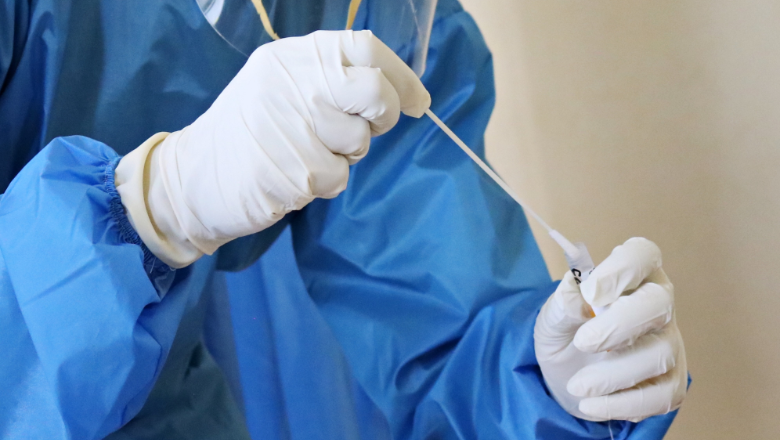
King's scientist makes plea for greater focus on natural textile fibres
A scientist at King’s has contributed to a letter urging environmental scholars to give greater focus to the environmental impacts and sustainability issues...
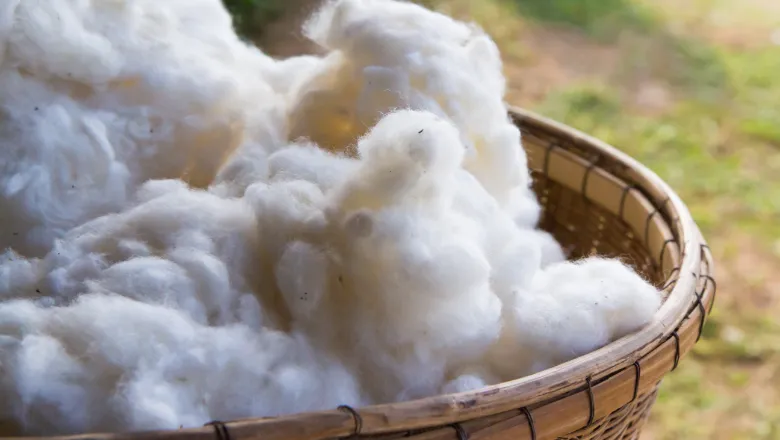
Laundry cycle demo reveals extensive textile fibre shedding
King’s has hosted the UK’s public first demonstration of fibre fragmentation, highlighting the extent to which textile fibres shed from fabric during a...
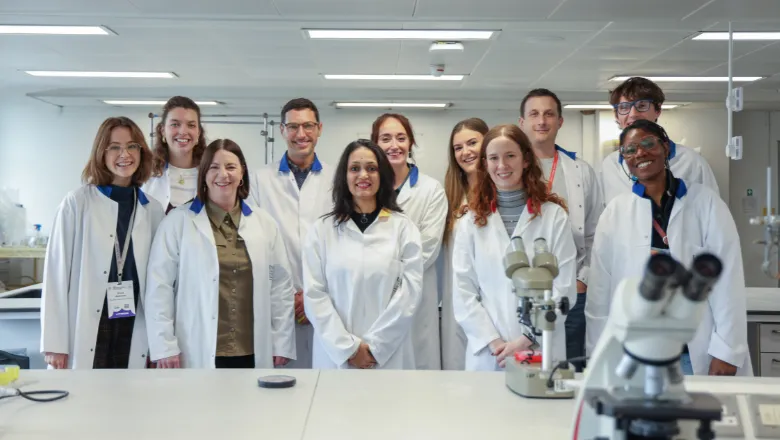
King's to help examine how environmental impact of fashion is measured
Dr Matteo Gallidabino, a forensic chemist based at King’s College London, will contribute to the project, which aims to help transform the fashion industry.

Jiu Jitsu team tests fibres transfers in mock assaults
Academics at King’s College London and Northumbria University have examined how many clothing fibres transferred between victim and assailant during mock...

Wastewater microfibres contributes to potential pollution on Kenyan coastline
Researchers from King’s and Northumbria University found that microfibres released from washing clothes may pose problems for East African ecosystems
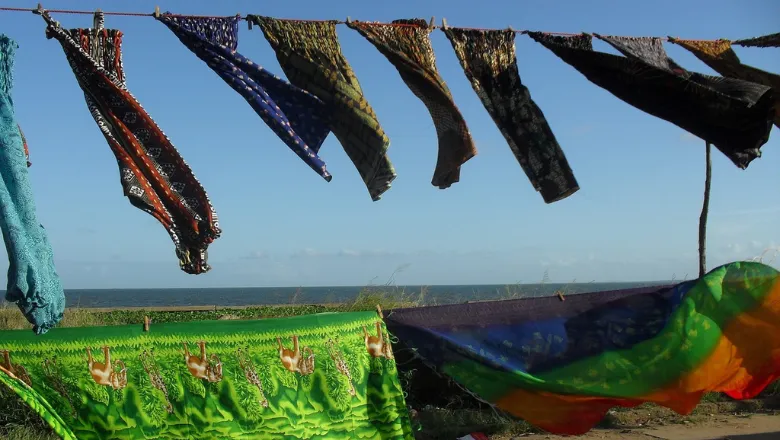
Events
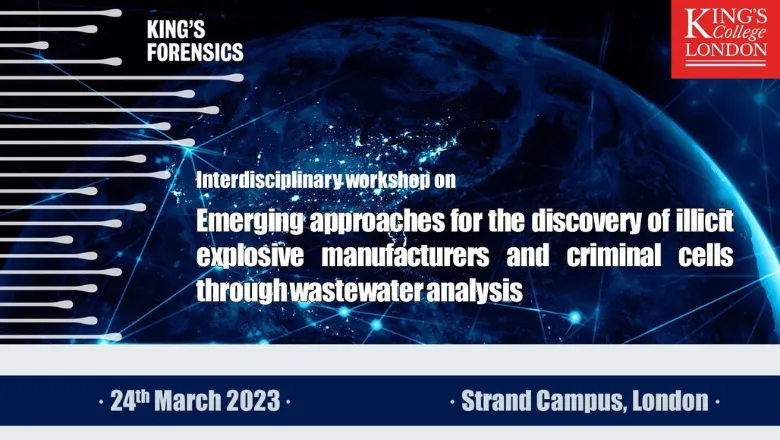
Interdisciplinary workshop on emerging approaches for the discovery of illicit explosive manufacturers and criminal cells through wastewater analysis
Interdisciplinary workshop on emerging approaches for the discovery of illicit explosive manufacturers and criminal cells through wastewater analysis
Please note: this event has passed.
Research

King's Water Centre
Researching water, environment and development. Our centre spans the humanities, social, and physical sciences to explore the challenges of water governance from global to local scales.

Climate & sustainability researchers at King’s
King's researchers working across climate and sustainability
News
Study opens the door for stronger evidence in bomb handling cases
Scientists have for the first time provided insight into how bomb residue transfers to the hands of suspects, which could lead to stronger evidence in court.

King's scientist makes plea for greater focus on natural textile fibres
A scientist at King’s has contributed to a letter urging environmental scholars to give greater focus to the environmental impacts and sustainability issues...

Laundry cycle demo reveals extensive textile fibre shedding
King’s has hosted the UK’s public first demonstration of fibre fragmentation, highlighting the extent to which textile fibres shed from fabric during a...

King's to help examine how environmental impact of fashion is measured
Dr Matteo Gallidabino, a forensic chemist based at King’s College London, will contribute to the project, which aims to help transform the fashion industry.

Jiu Jitsu team tests fibres transfers in mock assaults
Academics at King’s College London and Northumbria University have examined how many clothing fibres transferred between victim and assailant during mock...

Wastewater microfibres contributes to potential pollution on Kenyan coastline
Researchers from King’s and Northumbria University found that microfibres released from washing clothes may pose problems for East African ecosystems

Events

Interdisciplinary workshop on emerging approaches for the discovery of illicit explosive manufacturers and criminal cells through wastewater analysis
Interdisciplinary workshop on emerging approaches for the discovery of illicit explosive manufacturers and criminal cells through wastewater analysis
Please note: this event has passed.
